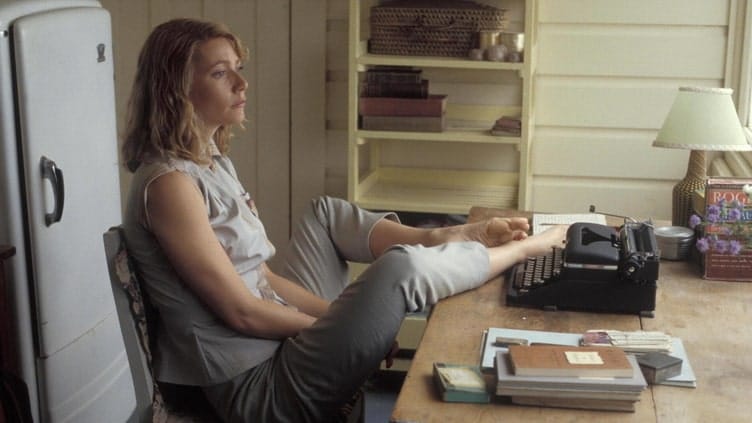It can be hard to figure out where to send your work or who to contact about possibly reading your writing. Your work could be something that’s already written. It could even be a piece you have thought about writing and you want to know if it’s worth it to get started. Either way, an essential part of getting your work out there is being able to write a query letter.
Table of Contents
- What is a Query Letter?
- Main Purposes of a Query Letter
- How Do I Start the Querying Process?
- 10 Tips for Writing Your Query Letter
- 1. Be Original and Connect With the Recipient.
- 2. Express Confidence in Your Work and Ability.
- 3. Make Sure That the Concept of Your Story is Clear.
- 4. Your Synopsis Should be Active and Dramatic.
- 5. Don’t Give Too Much Away but Don’t Also Be Too Vague.
- 6. Try Not To Get Too Personal When You Talk About Yourself.
- 7. Include Information About Yourself and Your Writing Experience or Lack Thereof.
- 8. Make Sure You Double and Triple Check That Your letter Contains No Spelling or Grammatical Errors.
- 9. Do What You Can to Make Sure You Have All the Proper Information For the Person You Want to Send Your Query Letter To.
- 10. Nail Your Subject Line.
- What Should I Do Once My Query is Sent?
- Query Letters and Your Future
What is a Query Letter?
A query letter is a formal letter that is sent by screenwriters in the hope of enticing the right people to read their work and possibly sell it. These people may be agents, executives, producers or studios/production companies.
The query letter is so important because it could very well be your first step into the screenwriting world. Unfortunately, writing queries can be a very painstaking and frustrating process. Striking the right tone can be tricky and knowing what people are looking for from this kind of request can be, in a sense, unknowable.
Still, writing the right kind of query letter has the potential to create many connections and opportunities. Introducing yourself in a pithy, efficient and effective way is no easy feat. But doing so can be an in that could ultimately be priceless.
Executives also often look at query letters as a reflection of your skill as a writer. So, if your query letter is not up to par they may assume that your ability as a storyteller may lack the creativity and talent they are looking for.
Main Purposes of a Query Letter
A query letter has three major purposes:
1. It opens the door to establishing a relationship with an executive/agent/producer.
- Building a relationship such as this could be the key to having your work circulated, sold and you becoming a sought after writer in general.
- If someone with reach is willing to vouch for you then that counts for a lot.
- And a solid introduction is important in potentially creating this kind of relationship.
2. It requests permission to legally submit your project.
- This is an important part of protecting your work.
- Make sure you are registered and protected as a writer before you start sending your scripts out.
- A key part of this is making sure you ask for someone to read your script before you send it out blindly.
- This also creates a paper trail, so there is no dispute over theft of ideas.
- The last thing that you want to happen is for your work to be questioned or to be accused of plagiarism. This will cause people to disregard your script due to uncertainty with its origins and could cloud your career, in general, going forward.
3. It starts the process of your script becoming a project in earnest.
- Until you start sending out requests for your script to be read, it’s just sitting on your desktop.
- A project isn’t really started until you are trying to get it read and taken seriously professionally.
- Sending out query letters is a way of formalising the start of your script’s journey.

How Do I Start the Querying Process?
Since the query letter should only be about a page long you have to pack as much of a punch into that page as you can.
Most query letters follow a general format. They should include an opening paragraph, a one-sentence logline, one paragraph about the project, one paragraph about your background, and one paragraph inviting the agent and/or executive to read your script.
When starting the querying process it is good to have an idea of what you are looking for. If you are looking for an agent, then it may work to target the places where the best agencies are. In the US, the best talent agencies are in Los Angeles and in New York City.

Subsequently, if you are looking for a place to have a project produced you should look at production companies, producers, or studios. It helps to do a lot of research in these instances. What is the best-suited place for your work?
Look into what kind of projects studios/companies have produced and what they are looking to produce in the future. The worst thing in the querying process is wasting your time and sending out to places that stand very little chance of taking your work.
Try and reach out to places and people you have a connection to. Make that connection clear in your query letter and justify why they should give you the time of day. It’s important to be targeted in this respect. So before you start sending out your query letters, it’s important to have a list of where you are sending them and why.
Consistency and Structure in Your Query Letter Approach
Furthermore, when it comes to query letters the more you write and send out the better. There are countless agents, execs, and studios out there that are looking for new talent and ideas. However, again, it’s important not to just spray and pray. Be focused in who you’re targeting and consistent and structured in how you are doing so.
It also works if at first you have a trial period and send out a small number of queries to start. This will help you garner feedback and let you know if your query is any good and if executives are bothering to read them or if they are just sending it to their reject pile.
If it seems like no positive feedback is coming your way this is your clue to rewrite your query and move forward with a different approach.
Keep track of where and when you are sending your letters. This helps in keeping the process consistent and organized. This is not a one time task. You’re likely to have to send out multiple rounds of query letters before you get successful responses (unless you’re very lucky).
And so don’t set yourself up to give up. Plan and build in a structure to your approach over a long period of time, assuming this is a practice that you will have to get used to for the foreseeable future.

10 Tips for Writing Your Query Letter
Before you start sending out your query letters you want to make sure that they are the best they could possibly be. Here are some tips for creating the best query that is sure to entice.
1. Be Original and Connect With the Recipient.
- Executives and agents likely get hundreds of query letters at a time. So do what you can to make yourself stand out but do not deviate too far from the format.
- You want to show why you’ve contacted them specifically. You could do this, for instance, by giving an example of a work of theirs you liked. Or you could demonstrate that your script is similar to others they may have produced.
- Don’t be vague in who you’re addressing the letter to. Do your best to find specific names. And be formal, not familiar. It’s fine to address someone relatively informally, it’s not a legal document after all. However, don’t be casual or too familiar with the way you address the person in question. This is a professional engagement.
2. Express Confidence in Your Work and Ability.
- Do not brag but do not be afraid to let the reader know that you are a good writer and that reading your work is something they will not be disappointed by.
- You want to be confident in your professionalism and ability to write a script that will be worthwhile for them to read.
- However, you also don’t want to signal arrogance or entitlement. Demonstrate why they should read your work in the professionalism of your tone, rather than acting like they are doing themselves a disservice by not reading your work or listening to you as a writer.
- Ultimately, there’s no inherent reason why this person should read your work. They have plenty of other scripts to read. So show them, through tone and the primacy of your idea, that your script is worth their time.
3. Make Sure That the Concept of Your Story is Clear.
- Try to be succinct and talk only about the most important points in your story. The person reading your writing should never be confused or have a hard time grasping what your story is supposed to entail.
- This will often primarily be present in how effective your logline is and how hard you have worked on it.
- Make sure your logline is punchy, memorable and effective in conveying your story’s essential elements.

4. Your Synopsis Should be Active and Dramatic.
- Make the reader feel like they cannot go another moment without reading your story in-depth.
- Pull the reader in and make them want more.
- But convey the drama within your story. Reflect the drama and tension in your story in the synopsis itself. The synopsis should be an engaging read, not just a purely functional one.
- In relation to this, your synopsis should be in the present tense.
5. Don’t Give Too Much Away but Don’t Also Be Too Vague.
- You want to give them just enough but not too much that they can picture exactly how your story will begin and end as well as what goes in between.
- However, don’t give away too much or go into too much detail. This has to be short overall.
- Find a way of boiling down each act to a sentence or two (at most). This way the synopsis overall remains succinct but meaty too.
- Careful of being too vague. You want to give the impression of what will actually make up the bulk of your story. What is going to drive the film and be the dramatic meat on its structural bones? Or if in TV, what is going to be the engine of the series?
6. Try Not To Get Too Personal When You Talk About Yourself.
- Do your best to just stay as professional as possible and don’t get too personal.
- Whilst you want people to invest in you, ultimately your work is the most important asset you have to offer.
- Try and strike a balance between letting them know what you can bring to the table in terms of your personal experience and background. But don’t let it overwhelm what should be pride of place in your query letter, your script.
- If who you are is especially relevant to your script, then it’s definitely worth giving this context.
- However, don’t use your personal circumstances to try and manipulate the reader into giving you their time. In the end, how strong your idea sounds is what is going to make them invest in you.
- Sometimes your personal details accentuate this, sometimes they don’t. A good rule of thumb either way is to keep it brief.
7. Include Information About Yourself and Your Writing Experience or Lack Thereof.
- Talk about if you have won any awards or accolades, but do not despair if you have not.
- Being honest is something that can really play in your favor. Lying about your experience and abilities will surely lead you to the reject pile if the person reading your letter finds out you are not being truthful.
- And don’t be ashamed if you have little experience.
- In fact, trade on this. Pitch yourself, for example, as an exciting, fresh new voice. There’s little else out there that will make an agent, executive or producer excited than the prospect of fresh talent that they could get first dibs on.
- Furthermore, if you do have accolades and experience, be judicious in what you include and what you don’t. The reader won’t want to take in an exhaustive list of everything you have ever done. So instead, only include what best supports your argument to getting your work read.
- Try, for example, to stick to including what you can fit in one, relatively succinct sentence rather than having to essentially include a list of all your experience.

8. Make Sure You Double and Triple Check That Your letter Contains No Spelling or Grammatical Errors.
- This is a no brainer. Grammatical errors not only make you seem sloppy they make it seem like you didn’t take the time to look over the query letter.
- If you can not be bothered to make sure your one-page letter is perfect, then the reader might assume your script is littered with just as many errors.
- It might seem harsh but a query letter containing even one error can seriously affect whether or not the recipient will follow up on it. So make sure you proof your letter and take time over it in the first place.
9. Do What You Can to Make Sure You Have All the Proper Information For the Person You Want to Send Your Query Letter To.
- This is another surefire way to land your letter in the trash – the wrong information.
- If it is a specific person you are writing to, make sure their name and title are correct and spelt correctly.
- If you’re emailing a company/studio, make sure the information on them is correct. Furthermore, if you’re making specific references to films/TV shows they have made, make sure this information is accurate.
10. Nail Your Subject Line.
- It’s important to strike the right balance with your subject line.
- It should be formal and business-like, rather than vague. Try and avoid subject headers that start with a ‘hello’ or anything too questioning (such as anything ending in a question).
- Use other lines of business as a template. For example, if you are engaging in a legal discussion via email, the subject lines will be specific and professional (Contract 4135, for example).
- Reflect this in how your approach your query letter (for example, Your Script Title – Your Name).
What Should I Do Once My Query is Sent?

Once you have perfected your query letter and sent it out, the waiting game starts. It could take several weeks before you hear anything. Yet, after a while, if you do not hear back from anyone you have to advocate for yourself and follow up.
If you get no further response after you have tried to get in contact, you should probably move on and look into making another query letter with someone else.
You don’t want to get into the habit of continually chasing a dead end. It can even sometimes start to reflect badly on you, making it seem like you won’t take a hint rather than that you’re admirably persistent. There’s a fine line and anywhere after the second follow up is probably where that line will be.
Also, your query letter will not always fall directly into the hands of the person that is in charge. It is most likely to fall into the hands of an assistant or someone that works under the agent, executive or producer.
- Try and establish a relationship with those who are lower down the ladder, as they will be the ones whose job it is to interact and engage with you.
- The executive of a large studio/company or a high profile agent is unlikely to have the time to engage with every email you send.
- And so if you’re in the process of following up, try assistants first, before going straight to the top, where it will be harder to be heard.
Additionally, during this process keep working on other projects. If one of the ideas that you had is not catching interest maybe another will. And you don’t want to be waiting around not being productive. It will only make the waiting process feel longer.
Query Letters and Your Future
Query letters are one of the best ways to get people to see your work and interest them in what you have to offer. In your letter, you must make sure that the person reading can not just see but feel your passion, your confidence, and your talent.

Agents and Executives do not want to waste their time with writers and stories that come a dime a dozen. Do not be afraid to show that no one has the ideas you do. Always make it clear what exactly you are offering them and how this is distinct or unique from the hundreds of other enquiries they will get weekly (sometimes even daily!).
Have confidence that your writing will speak for yourself. But know also that you have to give that writing a chance to speak in the first place. This is what a query letter does – gives someone a reason to give your writing a chance to speak for itself. It might be only one page long but this writing could be some of the most important you will ever do.
In Summary
A query letter is a formal letter that is sent by screenwriters in the hope of enticing the right people to read their work and possibly sell it.
A query letter will typically be sent to agents, executives, producers or studios/production companies. Make sure your query letter is targeted at the appropriate person for you and your script. Otherwise, it can be a waste of time both for you and for the recipient.
1. Be Original and Connect With the Recipient.
2. Express Confidence.
3. Make Sure Your Story is Clear.
4. Make Your Synopsis Active and Dramatic.
5. Don’t Give Away Too Much But Don’t Be Vague.
6. Don’t Get Too Personal.
7. Include Your Experience and Credentials.
8. Triple Check For Spelling and Grammar.
9. Have All the Right Information For the Recipient.
10. Perfect Your Subject Line.
– What did you think of this article? Share It, Like It, give it a rating, and let us know your thoughts in the comments box further down…
– Struggling with a script or book? Story analysis is what we do, all day, every day… check out our range of script coverage services for writers & filmmakers.
This article was written by Cherrish Warnick and edited by IS staff.
Get *ALL* our FREE Resources
Tackle the trickiest areas of screenwriting with our exclusive eBooks. Get all our FREE resources when you join 60,000 filmmakers on our mailing list!


Excellent article!
Thanks Tim!
Sounds like Dorothy trying to see the Wizard of Oz…